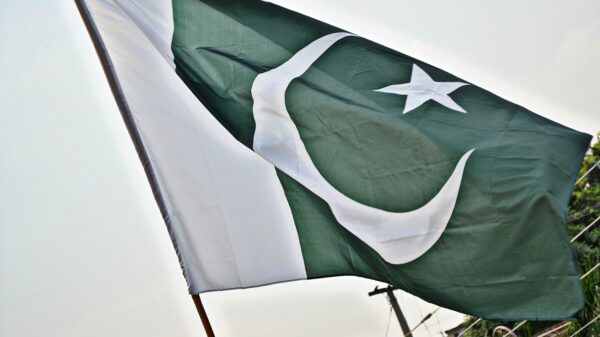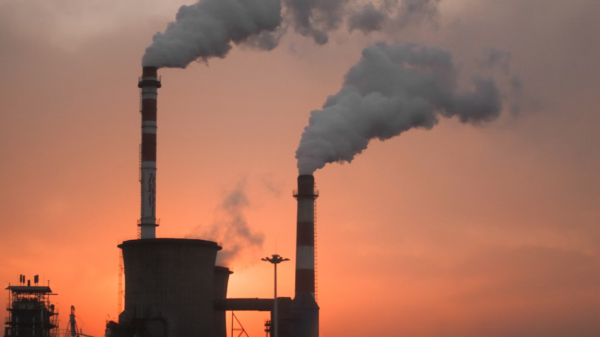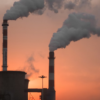Staff writer Aneela Aslam on the impact of the West on the floods in Pakistan and the climate crisis in the Global South.
Pakistan Sinks
Living off crops, farming, and cultivating the land. This all seems strange to us in our large western metropolis bubbles, but this is the reality of many people’s livelihoods in the Global South. In the Sindh region of Pakistan, catastrophic flooding has hit and completely devastated the agriculture that many rely on for survival. Following heavier rains in the monsoon season, a third of Pakistan is now under water due to flooding. Further casualties include over 1,600 dead and more than 12,000 injured. Bridges, dams, and entire communities have been washed away and up to 30 million people have been impacted by the flooding. Not to mention the worsening economic conditions and the loss of 800,000 cattle, another loss of livelihood. These statistics may seem bleak, meaningless, and unavoidable. However, these convey the devastating reality for Pakistanis and other places hit by climate disasters. The true reality is that Pakistan is only responsible for 0.4% of global carbon emissions since the 1950s, yet it faces far worse climate consequences than higher contributing nations due to its geographical location. The real question is: is the West responsible for the cataphoric flooding and was it preventable?
Carbon Consequences
Soaring summer temperatures, due to ever-increasing carbon emissions, resulted in the highest temperatures in decades as a heatwave swept Southeast Asia this past summer. This heatwave led to an increase in average rainfall during the monsoon season and Pakistan received a record-breaking increase of 190% more rainfall during the 2022 monsoon season. July 2022 was devastatingly filled with heavy rain-showers, leading to the state being flooded under 15.4 inches of water. The main perpetrator of course is climate change; however, it is after all common knowledge that climate disasters are the consequences of human disregard for the environment.
So how are the nomadic and agricultural citizens of Balochistan and Sindh responsible for emitting carbon emissions and exacerbating climate disasters?
Simply put, they aren’t. If we take the previous statistic of Pakistan only emitting 0.4% of greenhouse gas emissions, then it’s plausible to accept other states with much larger spheres of influence are responsible for increasing climate calamities.
If we cast our eyes towards some of the more influential nation states’ carbon emissions, we find that the USA is responsible for up to 21.5% of global emissions and China is responsible for over ¼. Pakistan looks like a relatively inconsequential participant in climate change. However, some may argue that to compare Pakistan to such large nations is over-estimating the role they play in being responsible for climate disasters.
However, if we compare Pakistan, the victim of terrible flooding, to some nations that are relative in size to it, we can see how Western and wealthier nations are the main contributors to climate change. The United Kingdom and Italy are both relatively smaller than Pakistan but emit twice as much Co2, thus indicating how Western nations are responsible for the disasters causing instability and destruction in the global south.
Infrastructure and Imperialism
The New Yorker identified the flooding as biblical and a chronicle of the ever-warming planet. Well, Pakistan is no stranger to disaster and chaos, whether it be environmental or man-made. Sprung from the chaos of partition in August 1947, the recent flooding only adds to a string of ever-evolving fatalities for the ordinary non-elite civilians of Pakistan. The nomads of Balochistan are worlds away from elite Pakistani bureaucrats. Built on the aftermath of centuries of imperialism, it is safe to say that the infrastructure of Pakistan was simply not equipped or sufficient enough to deal with such extreme flooding. The Washington Post pinpoints how Pakistan’s lack of proper infrastructure is rooted in the colonial legacy of the British Empire. It is rightfully explained how both post-partition and presently the administration of the state rely on and work alongside European and US elites, even in regard to armament, agriculture and water infrastructure.
An integral part of the process of partition was the division of waterways between India and Pakistan, and the US was a significant participant in these negotiations. The Indus Water treaty brokered by the US and the World Bank divided 20% of the total water to India and the other 80% to Pakistan. The foreign investments in Pakistan post-creation indicate how inherently the nature of water is political, and crucial to imperialism. Just as the US invested in Germany post-war, post-partition they undoubtedly invested in Pakistan. One US Construction company obtained a contract over $500 million to build the Mangla Dam in Jhelum. Furthermore, (adjusted for current inflation) $17 billion dollars was spent on the construction of different types of dams and 400 miles of canals in the Indus Basin. This large connecting infrastructure network was opposed by contemporaries who suggested Pakistan’s own institutional growth would be stunted after such foreign investment.
The contemporaries who opposed foreign aid weren’t wrong, and maybe the flooding is biblical as currently Pakistan has external debt worth $99 billion and is in the top 10 of water borrowers. It is ironic that one of the poorest nations in the world has ever increasing debt and will have to occur more to recover from the recent flooding tragedy. Developed nations distribute financial climate aid as loans and not grants. These further asserts how imperialist values dictate the nature of humanitarian aid given to developing nations in the Global South, who are victims to increasing climate catastrophes caused by Co2 emissions in the Global North. It is predicted that by 2050 the economic cost of loss and damage in the global south will be around $1-2 trillion. Perhaps, the recent flooding and poverty are intrinsically linked as both can be seen as unnatural consequences of developed nations exerting power over disadvantaged people.
Resources and Enviromental reparations?
Hundreds of casualties of the recent flooding are just statistics, but they were people. People who were especially reliant on the earth to live and earn their livelihoods. Perhaps, it is difficult to understand the nomadic lifestyle in the digital age. However, it has been suggested that lack of preparation can inevitably lead to preventable flooding. The recent 2022 flooding has damaged around 8 dams in the province of Balochistan and is the 5th flood in Pakistan to have killed a significant amount of people.
So why aren’t the people more prepared?
The simple answer is lack of resources and unfortunately inadequate access to education. One 2016 study pinpointed how civilians were ill-equipped to deal with flooding. In provinces hit by floods, citizens live on floodplains due to the agricultural nature of their work and literary rates of around 50% do not help to inform them of risks. Lack of proper administrative investment into national structures like education and healthcare means that citizens are left victim to catastrophes like the present flooding. This further prompts the question of whether climate victims deserve reparations from the biggest perpetrators of global warming.
Prior to the flooding, inflation was at a 40-year high in Pakistan and the increase in demand for necessities has only skyrocketed this since the flooding. The climate catastrophe is having devastating impacts on the economy in Pakistan, and the BBC even suggest a looming food crisis. This really does raise the issue of climate reparations, when some of the richest states in the world are mostly responsible for such climate disasters. When questioned about climate reparations by the UN, a representative of the USA, John Kerry, claimed that “trillions of dollars…that’s what it costs”. Similarly, the calls for a lose and damage facility by the G-77 were blocked in Glasgow COP26 by developed countries.
Aid
However, many states have been contributing aid to Pakistan. as it is estimated by the government that they have lost $30-40 billion dollars. The UK government’s Press Release indicates how around £25 million has been spent to aid recovery and provide relief to the areas affected. At the end of September 2022, the PM of Pakistan appealed to the West that “all hell would break lose” without financial relief. However, it is possible that the aid being received currently is simply too late and won’t have an instrumental impact in recovering Pakistan. This is further indicated by the UN increasing the aid required for flood-relief to a staggering $816 million dollars. According to one source, wealthy countries have not yet met the UN’s original proposal figure for aid, thus the future looks bleak for the recovery of Pakistan. The rupee has been sinking alongside Pakistan, as it is on track to hit an all-time low, with £1/$1 being worth over 200 Pakistani rupees. Whether it will recover remains to be seen.
One thing is clear: victims of the flood deserve to be recognized as preventable deaths and if not reparations, then the consequences of climate change must be truly re-examined. It is true that climate change is practically irreversible, but the tragedies in the global south could still be prevented. If developed nations took responsibility for their lack of action towards preventing climate crisis, then situations like the disaster currently facing Pakistan could be minimised.

















